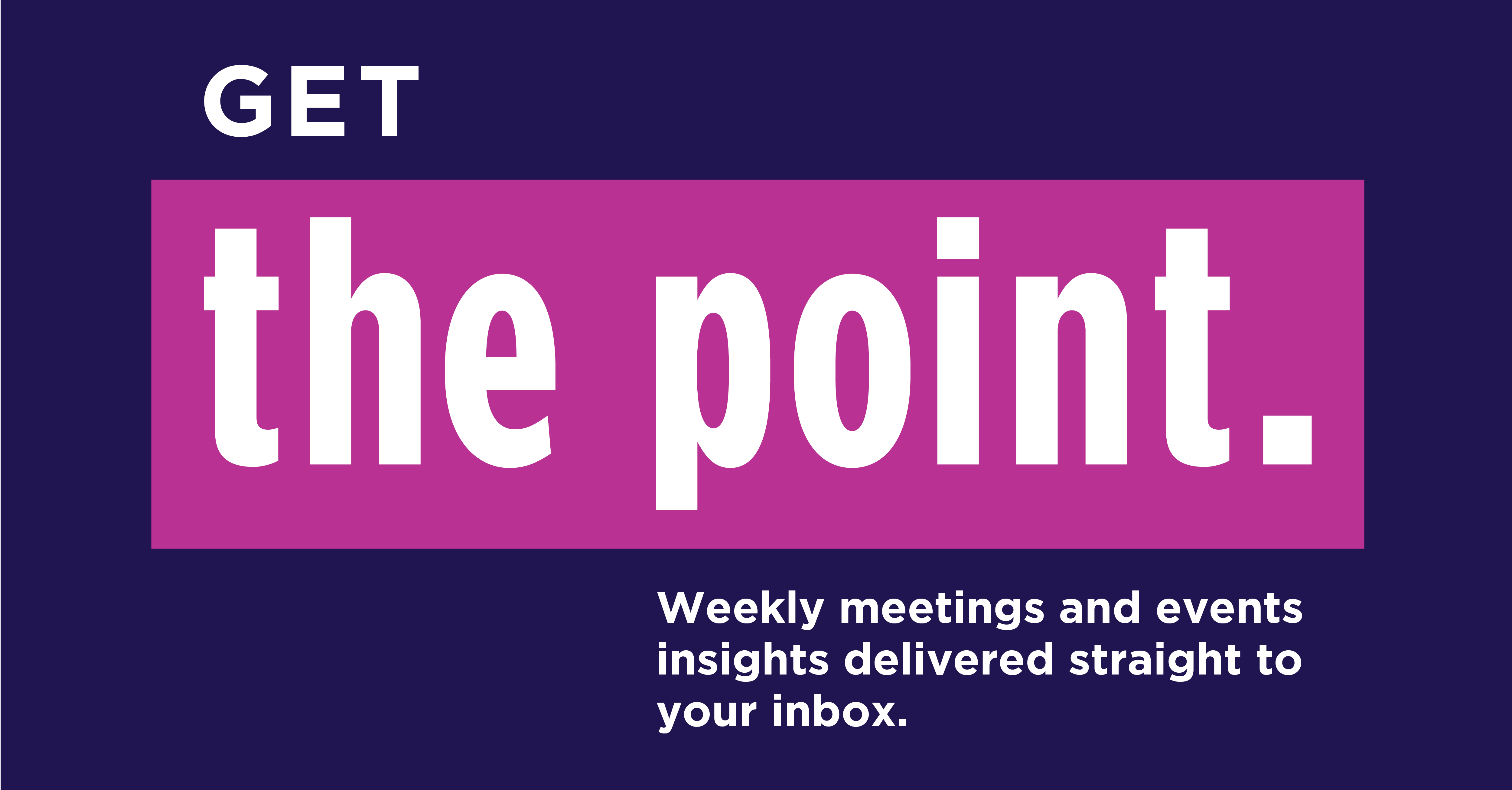When it comes to sourcing meetings, high demand, and low supply continues to be a major hurdle for buyers. Jen Munro, a Meetings Management expert, is here to offer some practical strategies and best practices to tackle these issues head-on, from limited availability and tough contracts to high prices and staff shortages. Discover valuable insights and smart moves that can help you navigate the complexities of the current landscape and optimize your meeting experiences.
How to source meetings in a high-demand, low-supply marketplace
Surveys and industry research carried out during 2021 and 2022 suggested that we would start to see the level of demand experienced in 2019 return from 2024 onwards. Yet here we are, in 2023, battling against limited availability, tough contracts, high prices, and staff shortages.
Let’s take a look at some of the smart moves to consider for each of these hurdles.
Limited availability and pricing challenges
1. Education
Don’t shy away from taking the business through the dramatic journey the industry has faced over the past three years, where it stands today, and what impact this has on the organisation moving forward.
The extraordinary rates we’re seeing are not a result of demand alone. Construction costs for hotels are up 41% in some markets, wage inflation across the hospitality sector has risen to 25% and food inflation has increased by 19% in the 12 months leading up to March 2023. Hotels are trying to take on some of the cost impacts but, ultimately, they get passed onto the consumer.
Additionally, the ‘great resignation’ led to a surge of workers leaving the meetings, events and hospitality industries, the majority of whom did not return after the pandemic. Whilst staffing is in a better state than it was last year, we now have a huge upskilling requirement across most regions.
These challenges bring frustrations to meeting owners in the form of misguided expectations on rates and turnaround times. However, providing an honest portrayal of the marketplace and educating clients can help ease these frustrations and build trust.
Best practice: Look at an education plan and bring an agency in to support with messaging. Keep it simple with workshops and bite-size communications that include tactical changes meeting requesters can action. Don’t forget to include stakeholders from all levels of the organisation to ensure they understand the need for support.
-
-
Plan ahead to be flexible
-
Give greater lead times
-
Compare necessary concessions vs preferred ones
-
Assess where to invest. Do you use a small budget and focus on great content and upskilling speakers to tell a more compelling story, or do you invest heavily in production?
-
2. Strategic Meetings Management Plan (SMMP)
Covid has provided a sobering reality for a lot of organisations that have left themselves exposed, with bad practices around contract management as well as duty of care. There’s never been a better time to either kickstart your SMMP or reevaluate some of the fundamentals to ensure it stands up in today’s climate.
Best practice: Obtain stakeholder buy-in by using industry stats and live examples to tell a more compelling story to support the need for an SMMP. If stakeholders are not willing to support and encourage the programme, you will have nothing to leverage. Make sure there is accountability and clear governance in place.
3. Simplicity
It is crucial for businesses to register their meetings in order to gain a comprehensive understanding of their events and harness the data collected to maximize their spending potential. The only way you can do this is by creating an easy, streamlined process through the programme, which incentivises planners to register. Win, win!
4. Supply chain strategy
Creating a preferred supplier programme and negotiating volume-based discounts is a must. Look at where it makes sense to have global MSAs in place to leverage key terms and rates and to gain efficiencies.
Best practice:
-
-
Set realistic SLAs within the MSA to help issues surrounding turnaround times and delays caused by the current skills gap.
- Look at suppliers with broad coverage to support the squeeze on availability.
- Consider introducing non-traditional suppliers into your programme, such as production and content companies that can help record and produce content that can be shared and repurposed for events as well as business use.
-
5. Facility management
Office space still remains largely vacant on days when staff are working remotely. To reduce cost and avoid challenges with availability, integrate facilities management within your SMMP and leverage technology to implement a process where your facilities can be utilised as part of your M&E programme.
6. Self-service
Reduce costs by managing small meetings that can easily be self-serviced by your employees. There is no need to ask your agency to manage a meeting that costs the business £1,000 if the event is only worth £5,000.
7. Sustainability
There is a real desire from businesses to incorporate more sustainable practices and decision-making, and meeting owners are equally eager to consider more sustainable meeting formats. If you have a plan in place, ensure it’s updated. If not, look at taking simple steps towards more sustainable meetings and ensure you include your efforts in the meeting guidance. This will naturally provide cost-reduction benefits, so ensure you have metrics in place to capture this saving.
Related Article: Meetings Maturity Model Findings and Insights in 2023
Tough Contracts
1. Addendums
Do addendums still have a place? Suppliers are telling us their main contracting challenges are time and skilled resources, with many chains outsourcing their legal function or having limited in-house legal counsel. Venue event sales staff’s knowledge of contracting is one of the biggest issues. They are great with the event specifics but have minimal or no expertise on the deeper, legal terms.
Best practice:
-
- Review the risk. If you have addendums or key terms in place, consider what is actually needed for events less than, for example, £10K. Try to identify the top 3-5 non-negotiables so that teams can have wider freedom to negotiate and close a contract more quickly.
- Layman’s terms. Set out the intent of the terms being requested. If these are not easy to understand, they are more likely to be rejected as suppliers don’t have the in-house skills or resources to adjust. If they are considered, they may end up being outsourced to legal specialists, which cause delays and incur costs.
- Consistency. Conditions are changing rapidly, so it’s important to review your process and addendums more regularly. Remove approval layers where you can, and create smarter processes to sign off on terms not agreed.
- Communication. Provide the non-negotiables at the sourcing stage so that it’s easier to whittle down partners that can support from the outset. Talk with suppliers and understand what their contracting process looks like so that you can preempt challenges and delays in advance.

Try our newsletter The Point.


